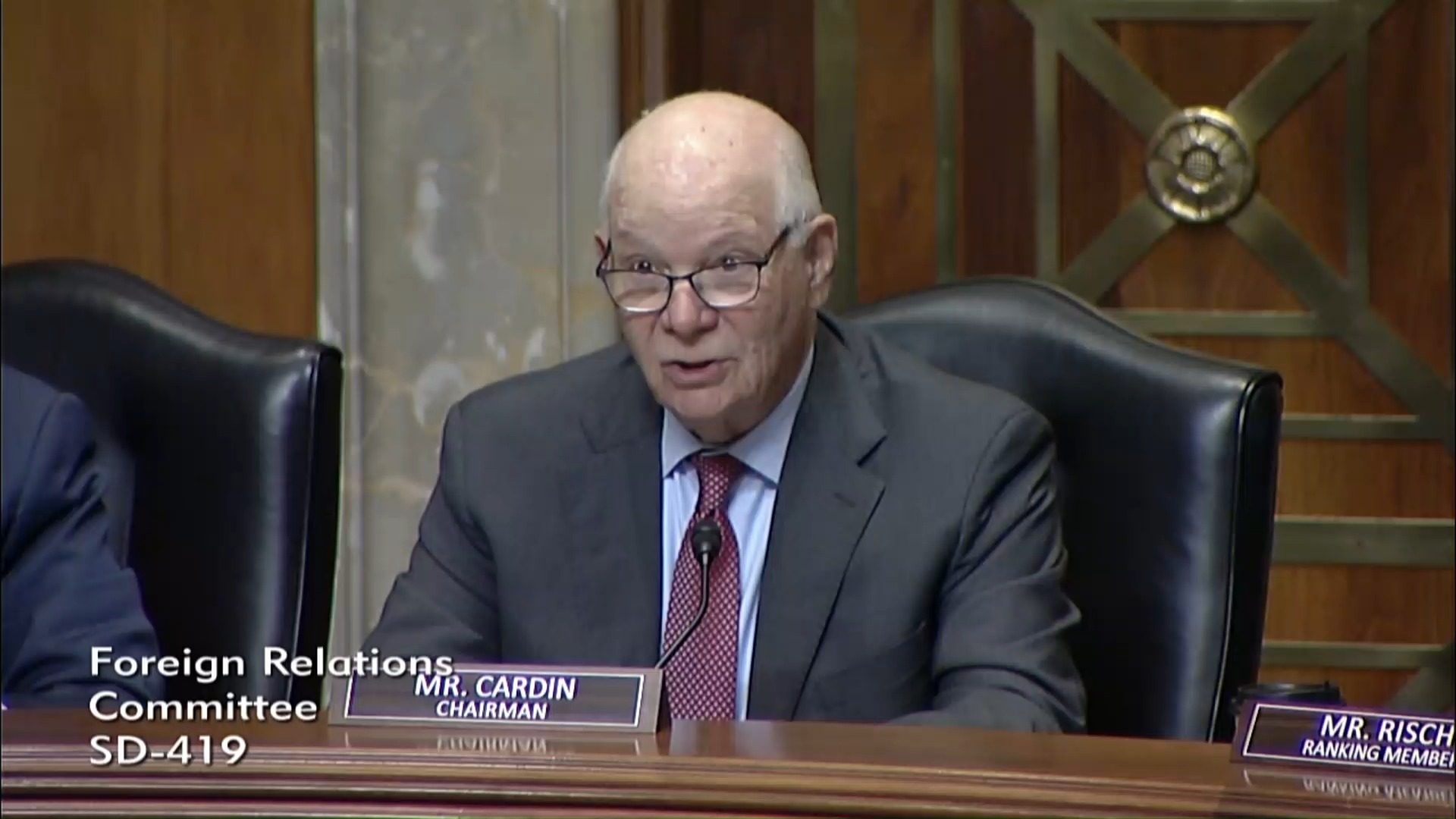Chair Cardin Opening Remarks at Hearing on U.S. Leadership on Artificial Intelligence
“The AI revolution is going to change economics. It is going to change societies. It is going to change the entire world. That means it’s also going to change the way we do diplomacy,” said Chair Cardin.
WASHINGTON – Today, U.S. Senator Ben Cardin (D-Md.), Chair of the Senate Foreign Relations Committee, delivered an opening statement at the Committee hearing on “U.S. Leadership on Artificial Intelligence in an Era of Strategic Competition,” and emphasized the importance of American leadership on AI to bolster peace and security around the world.
“If we are going to lead on global AI governance, if we are going to avoid a dangerous AI arms race, if we are going to harness AI to improve the lives of people on this planet, the State Department must be in the lead,” said Chair Cardin. “It cannot be left to generals without diplomats. I believe Congress—and this committee in particular—must play a central role in guiding America’s AI efforts.”
WATCH THE CHAIR’S OPENING REMARKS HERE
A copy of the Chair’s remarks, as delivered, have been provided below.
This hearing of the Senate Foreign Relations Committee, the subject is the AI revolution. I look forward to our testimony from our witnesses. As I think most members know, our leadership, including with Senator Young, have been busy setting up a college for us to learn AI. We appreciate it very much, we’re getting continuing Senate credits for our attendance at the AI conferences. Thank you, Senator Young for your leadership in putting that together. This is just another opportunity for the role that the Foreign Relations Committee will play in regards to what is our appropriate policies as it relates to AI.
The AI revolution is going to change economics. It is going to change societies. It is going to change the entire world. That means it’s also going to change the way we do diplomacy. Today’s advanced AI models are five billion times more powerful than just a decade ago. That’s five billion times.
This kind of exponential technology growth is unlike anything humans have ever invented. And we are still just at the early stages of the AI revolution. It has the potential to usher in unpredictable, complicated challenges, like empowering digital authoritarianism, or spreading bias and disinformation, or locking us into a spiraling AI race against our adversaries. At the same time, the AI revolution will bring about positive possibilities unseen in human history—predicting the outbreak of war, improving harvests to solve food security, curing deadly diseases, and unlocking green energy.
So I want to thank our witnesses for appearing before us today. I know you and your teams face challenges. Preparing the world to responsibly harness and deploy AI will be difficult. Preparing the Department of State for the future won’t be easy either. I want to thank you for the accomplishments you have advanced so far and for the heroic efforts that you are engaging in.
Your dedication and commitment in serving our nation is appreciated. Your teams include some of the sharpest minds in our government. That is why I want to challenge you to do even more. Thus far, much of the discussion around AI has centered around the military and private sector. But making money or making war is too narrow of an approach to the AI revolution. We need to proceed with an AI agenda that is wrapped in American values. That is why I think the State Department is not only crucial to this effort, the State Department must be a leader in global AI governance efforts.
The State Department has valuable data—that data has not always been well organized or used to its fullest potential. This includes real-time information from embassies and diplomats stationed around the world. It includes the UN voting records. It includes environmental and economic trends. This is highly valuable information. We know how much valuable information we are trying to gather today and how valuable that is for the private sector.
State needs to unlock the insights from this novel data and you have the workforce to do just that. The Department has a concentration of public servants with advanced degrees and go beyond foreign policy. Your data science experts are going to be vital in this effort. Our diplomats also must be involved as we manage our AI competition with nations like China and Russia.
Diplomats know how to take on complex and multifaceted problems. They know how to balance competing ideas when making policy, and most importantly, American diplomats know how to drive an agenda based on American values. Values that need to be part of the AI revolution; values that protect peoples’ privacy; values that lead to democratic elections; respect for human rights; and peace and security for people around the world.
If we are going to lead on global AI governance, if we are going to avoid a dangerous AI arms race, if we are going to harness AI to improve the lives of people on this planet, the State Department must be in the lead. It cannot be left to generals without diplomats.
I believe Congress—and this committee in particular—must play a central role in guiding America’s AI efforts. I hope you will share your thoughts on how you think Congress can accomplish that.
###
